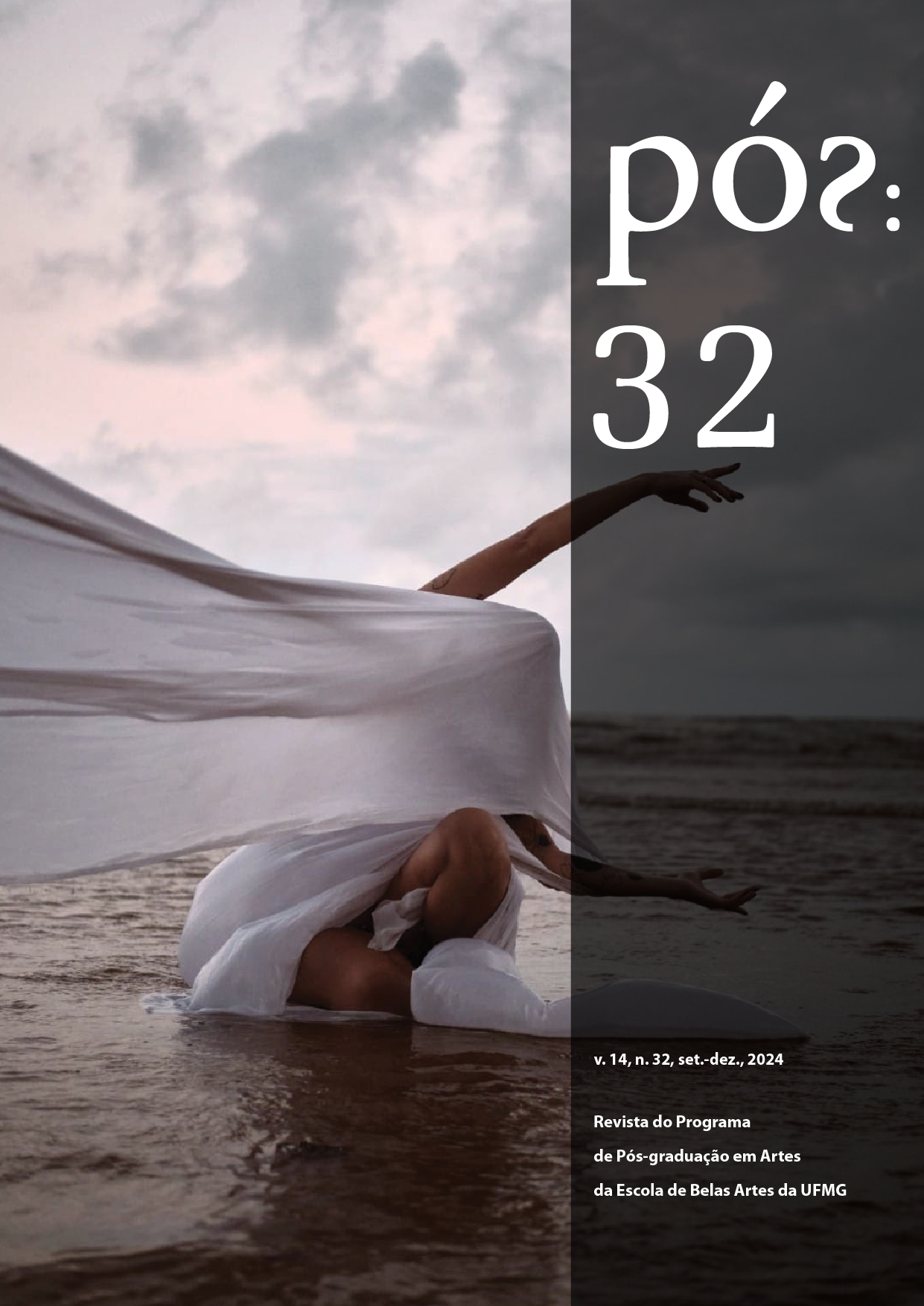Visual Essay
Process of creating the masks of Matias and the Infinite Road of Tempo
DOI:
https://doi.org/10.35699/2238-2046.2024.52739Keywords:
Masking, Visualities of the Scene, Allegorical FiguresAbstract
This Visual Essay exposes fragments of the creative process of masking present in Company
Bando theatrical play. The show is composed of four artists who tell the story of Matias and
his older brother: Bento, who wanted to make an inventory of the world in the house where they lived. Until one day Bento falls ill and dies, and Matias decides to start a journey to recover the Memory and the joyful Time they lived together. On his journey, he passes through three cities: The Opaque City, The City of Memories and The Forest Within Me. For each scenario, resident-apparitions and Afro-referenced deities were created with unconventional materials, visually referring to the inventive character of Bento, Matias and so many children around the world.
Downloads
Published
How to Cite
Issue
Section
License
Copyright (c) 2024 Anderson Ferreira do Nascimento

This work is licensed under a Creative Commons Attribution-NonCommercial 4.0 International License.
Authors who publish in this journal agree to the following terms:
- Authors retain copyright and grant the journal the right of first publication, with the work simultaneously licensed under the a Creative Commons Attribution-NonCommercial 4.0 International License that permits sharing of the work with acknowledgement of authorship and initial publication in this journal;
- Authors are permitted to enter into additional contracts separately, for non-exclusive distribution of the version of the work published in this journal (e.g., the Creative Commons Attribution License).
- Authors are permitted and encouraged to publish and distribute their work online (e.g., in institutional repositories or on their home page) at any point before or during the editorial process, as this may generate productive changes as well as increase the impact and citation of the published work.
- It is the responsibility of the authors to obtain written permission to use in their articles materials protected by copyright law. Revista PÓS is not responsible for copyright breaches made by its contributors.












